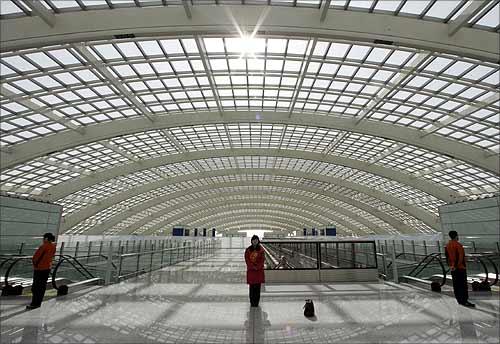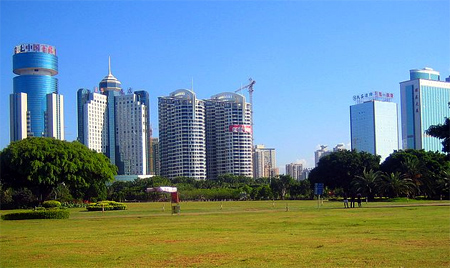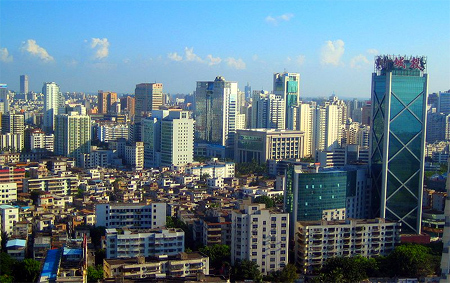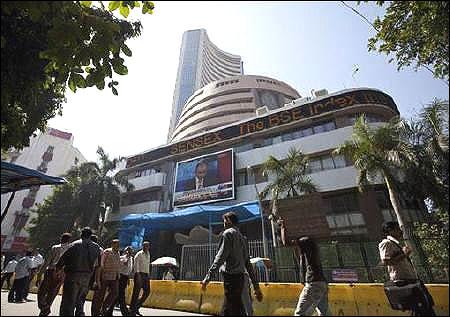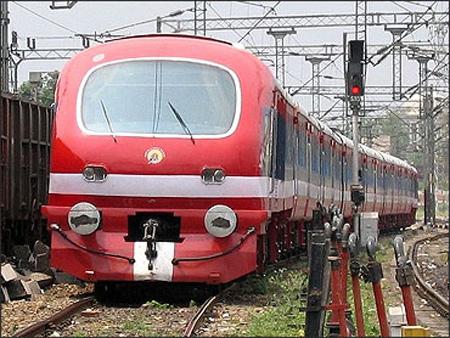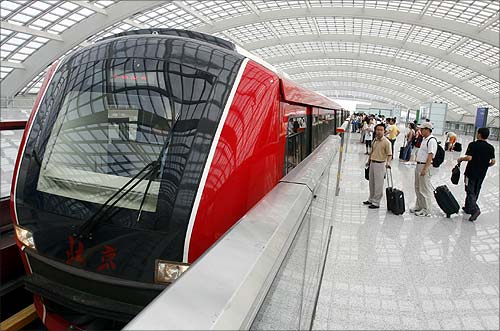 | « Back to article | Print this article |
China's economy booms, India lags
At a Singapore conference focusing on China last year, Lee Kwan Yew was taking questions after his dinner speech.
The western head of the Beijing office of a leading consultancy firm stood up to tell Lee that there was not just one country rising in Asia but two, the second being India. He asked Lee for a comment.
The former minister mentor paused for a moment and said, "China does, India talks", or words to that effect. He brought the house down in a roar of laughter.
Click NEXT to read more...
China's economy booms, India lags
There weren't many Indians in the cavernous hall, but all of them must have wished the earth would swallow them up at that moment.
I was in Singapore again recently, for an investor conference organised by an Indian broking house.
Facing the sceptical questions of foreign institutional investors, listening to their growing doubts about India, and trying to explain the goings-on at home, was a humbling experience.
Click NEXT to read more...
China's economy booms, India lags
Certainly, it was a far cry from the triumphal Brics scenario that Indian interlocutors had got used to touting in such fora. And this was before the Budget and its controversies involving international business.
The dents that India has suffered in its international image came home even more starkly last week, at the Boao Forum for Asia that China organises every year on Hainan Island - touted as Beijing's answer to Hawaii (apart from holiday spots that offer beaches and a balmy air, Hainan has a large naval base to make the Hawaii comparison stick; and of course it outdoes Hawaii with a bullet train service, expressways ... the lot).
Click NEXT to read more...
China's economy booms, India lags
The genuflection to China by 1,200 delegates at Boao was to be expected; what was not was the seemingly co-ordinated attempt by Chinese speakers to put India down, and to admonish it for not being a good neighbour-all of it revealing some sense of competition but also more than a little condescension, and a hint of danger.
Observers at Boao noted that China was beginning to vacate some areas of low-cost, labour-intensive manufacture as the country's per capita income rose, but the beneficiary was not India - as it could quite easily have been.
Click NEXT to read more...
China's economy booms, India lags
Instead, countries like Vietnam and Bangladesh were gaining from an influx of low-cost industries.
Businessmen from India were not surprised; they talked of long hours of power cuts, the high cost of every infrastructure input, the slow turnaround time at ports, labour law, and of course corruption at every step.
It sounded like a 1990s list, as though nothing had changed. Meanwhile, the ambitious development of the Hainan naval base presents a contrast to the bizarre shenanigans over defence matters at home, and revelations over the poor state of preparedness.
Click NEXT to read more...
China's economy booms, India lags
Hainan is closer to the Malacca Straits than India's Vishakhapatnam naval base, and can hold nuclear and conventional submarines (including in underground shelters immune to satellite-tracking), as well as two carrier groups.
To the lay observer, the brave talk of bottling up the Malacca Straits to squeeze Chinese oil supplies in the event of a land war seems to ignore China's naval capabilities.
The short point is that India is being tested strategically and economically, as China's economy has grown to four times India's size, from being about the same size in 1978 when it began its Four Modernisations (one of the four was defence).
Click NEXT to read more...
China's economy booms, India lags
The one thing that can help India regain some balance is sustained rapid economic growth, and the tragedy is that the political class is intent on sabotaging that goal.
China's ascendancy has reached a point where India will have to play a delicate game of exercising autonomy in its pursuit of national objectives without provoking conflict. But at the end of the day, "It's the economy, stupid!"
